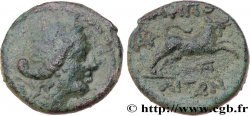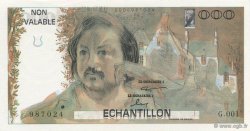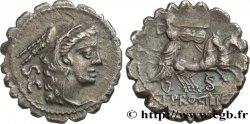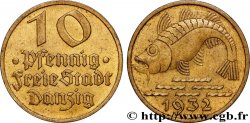Obverse
Obverse legend : ANÉPIGRAPHE.
Obverse description : Tête de Déméter à droite.
Reverse
Reverse description : Epi de blé.
Reverse legend : AMFIP/OLITWN
Reverse translation : (d’Amphipolis).
Historical background
MACEDONIA - AMPHIPOLIS
(2nd century BC)
Amphipolis, an Athenian colony, was founded in 436 BC to protect and exploit the very important silver mines in the hinterland at the mouth of the Strymon. During the Peloponnesian War, the city was besieged and taken by Brasidas who was also killed during the battle (Thucydides V, chap. VI-XI). The city regained its independence with a magnificent civic coinage between 410 and 357 representing on the right a magnificent young Apollo. Philip II of Macedon, father of Alexander the Great, captured the city and the silver mines in 357 BC. For the next two centuries, Amphipolis was the principal workshop of the Macedonian kings. After Cynoscéphales, the mint had an autonomous coinage, composed of tetroboles. The last phase of coinage began after the defeat of Perseus and the organization of the kingdom into four republics. Andriscus, who claimed to be the natural son of Perseus, rose up against the Romans in 148 BC. He was finally defeated by Publius Cornelius Scipio Nasica in 147 BC. The following year, in 146 BC- C., Macedonia became a Roman province.









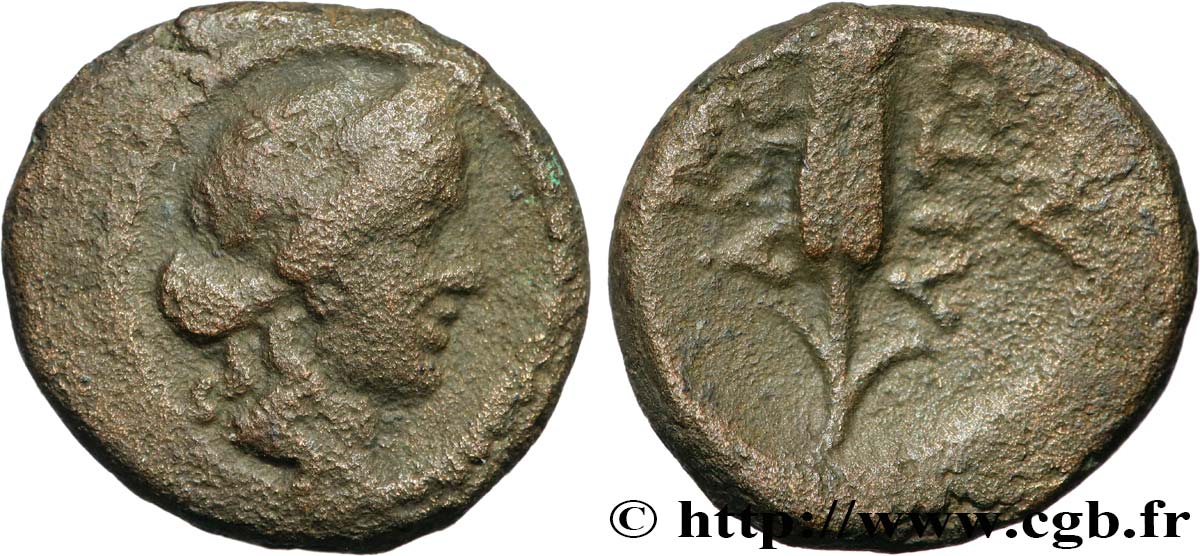
 Report a mistake
Report a mistake Print the page
Print the page Share my selection
Share my selection Ask a question
Ask a question Consign / sell
Consign / sell
 Full data
Full data

